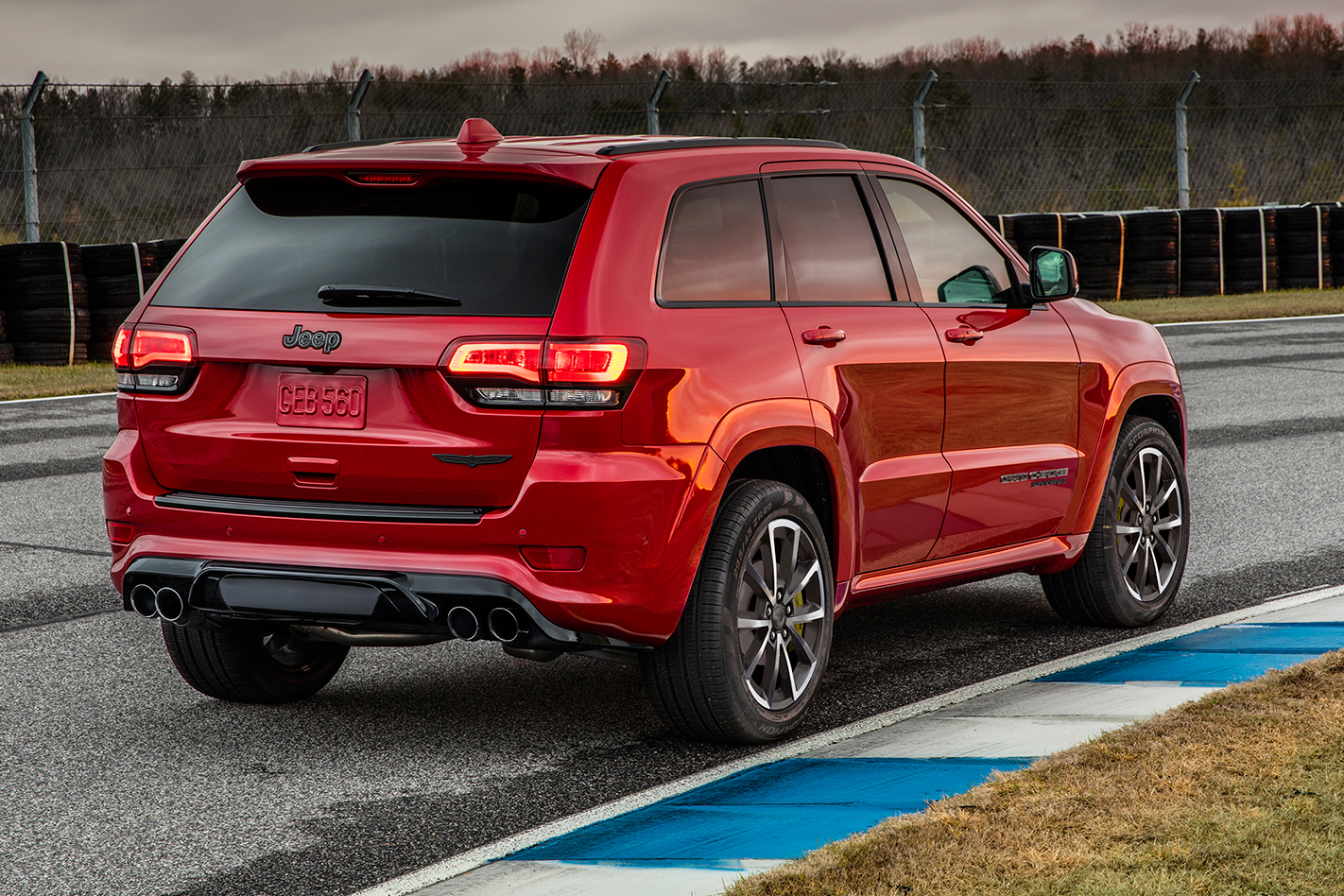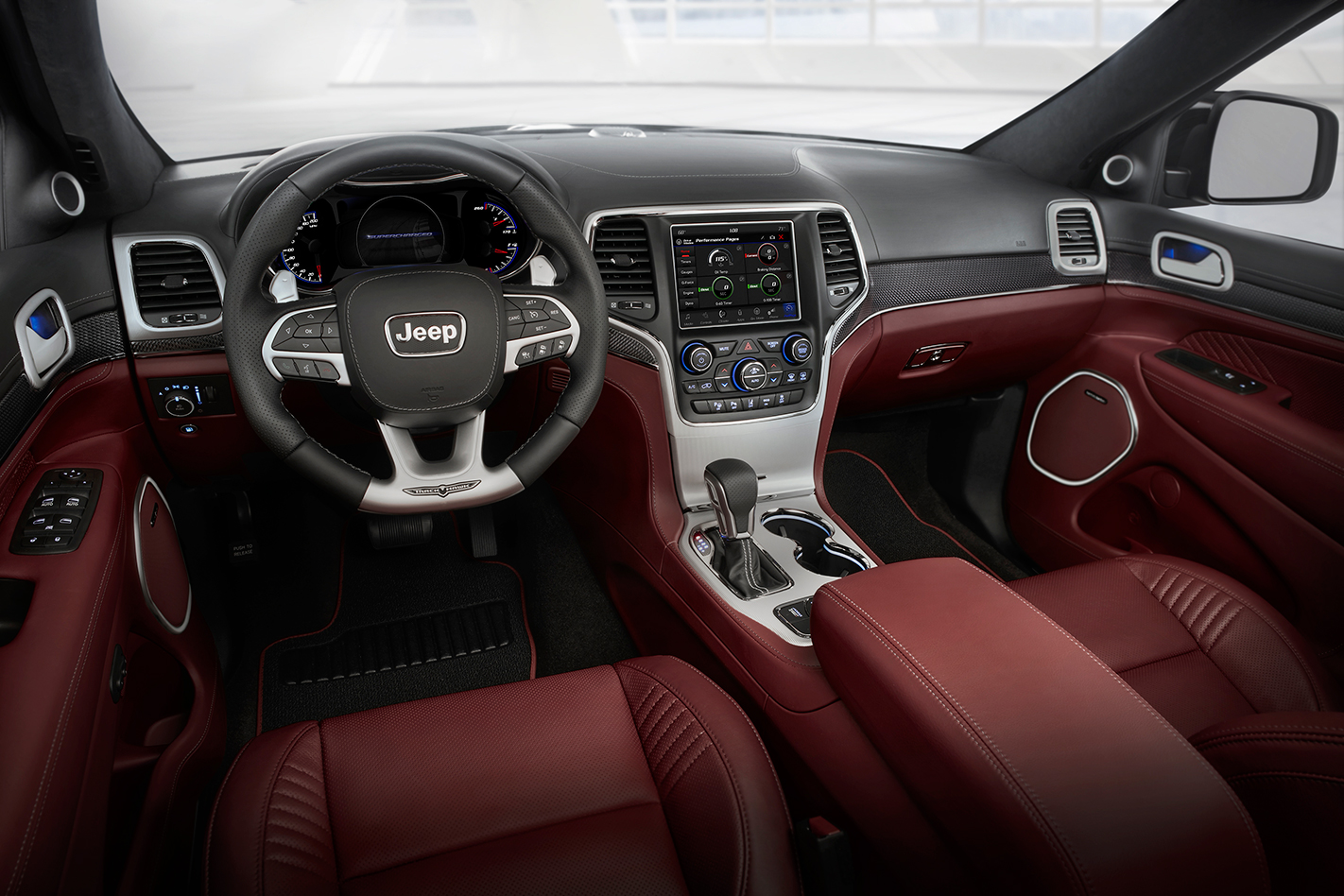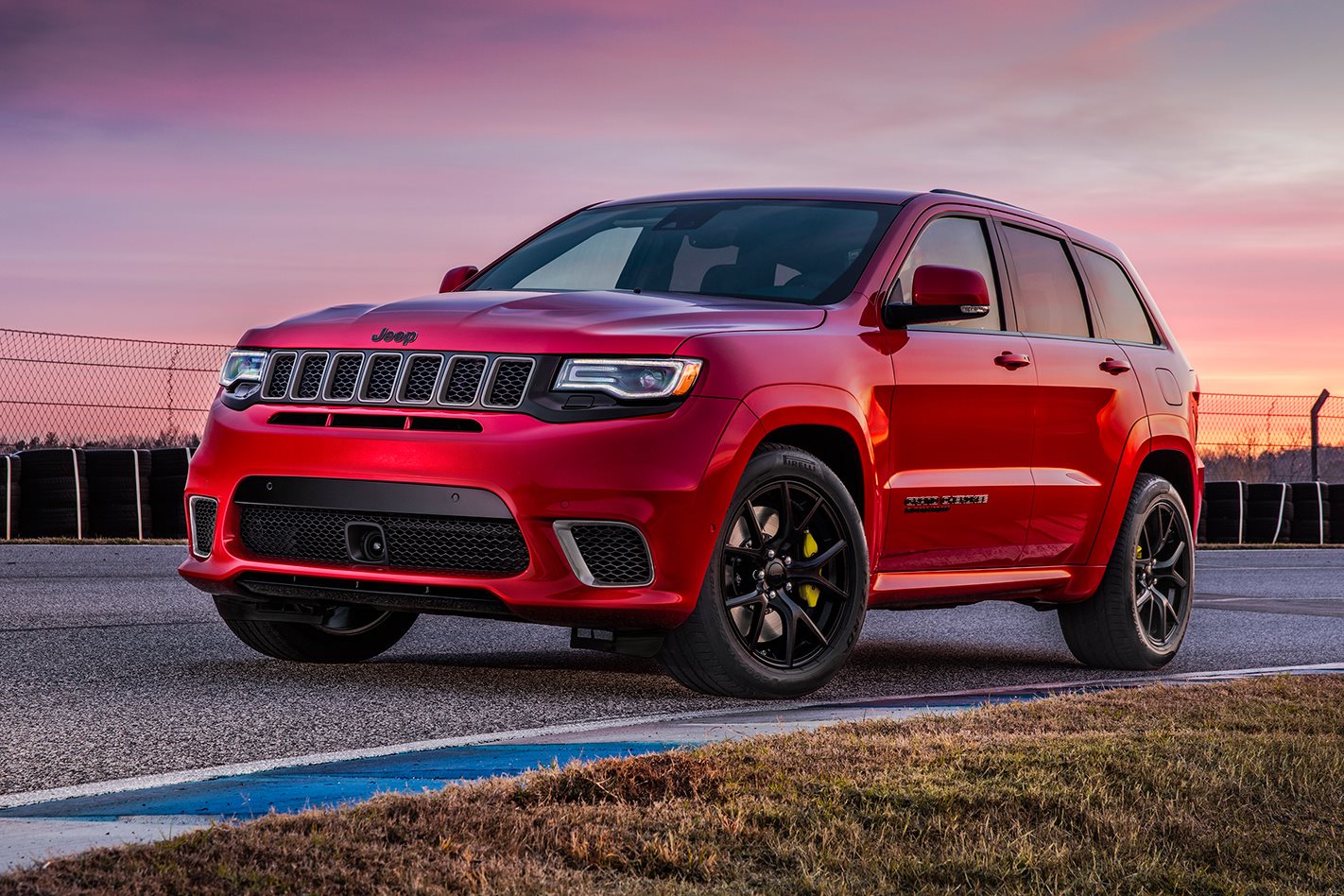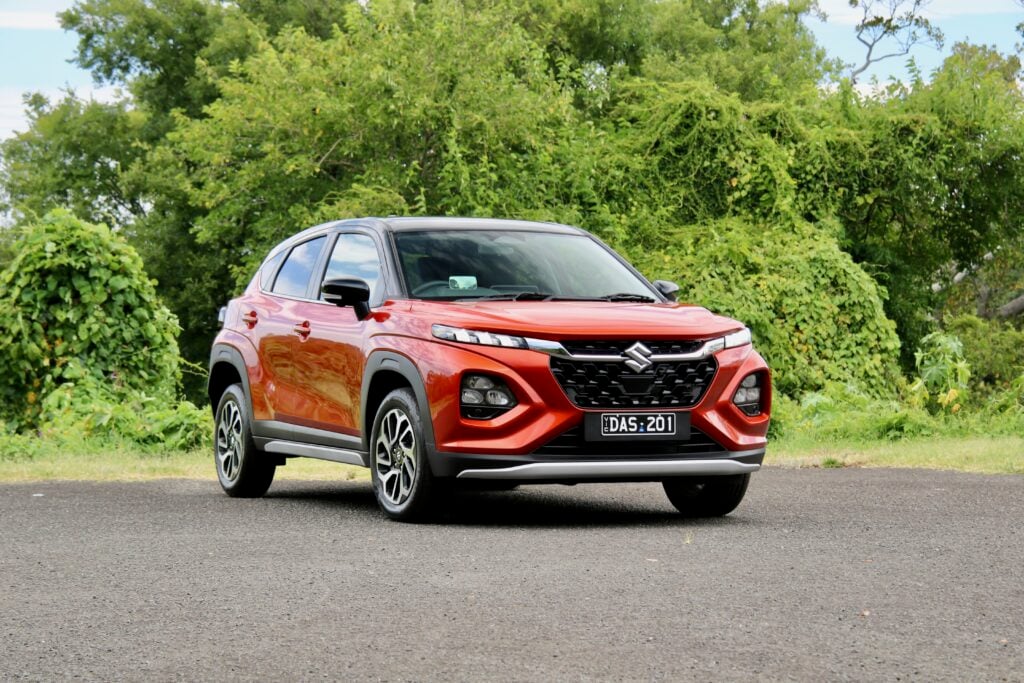THE 2018 Jeep Grand Cherokee Trackhawk doesn’t appear to be content to scalp its hi-po German SUV rivals on monstered performance alone when it arrives here late this year.
That’s because the 527kW/874Nm Trackhawk – the most potent, butumen-only version of the big off-roader yet – is also likely to take the fight up to the Porsche Cayenne Turbo, BMW X5 M and Mercedes AMG GLE63 in terms of how richly equipped it will be.

Wheels has just driven the Trackhawk on both road and track in the US , but a Jeep-stipulated embargo means you’ll have to wait until Thursday for our verdict. About all we can say at this point that certain words not were not uttered at the launch event; some of these included “hmm, it needs more grunt”, and “shame it’s not louder”.
As for the Trackhawk’s pricing? Jeep Australia is still yet to confirm, but we do know there will be a Launch Edition, limited to 62 units, (paying homage to the 6.2-litre engine) tipped to be priced from $160,000. That means it’s safe to speculate that the regular Trackhawk will be around $140,000.

The Australian sales slump of Jeep – numbers last year were down almost 60 percent from a high of more than 30,000 sales in 2014 – sits in direct contrast to success of the brand globally; Jeep’s volume has grown from circa 300,000 units in 2009 to 1.4 million vehicles sold in 2016.
Contributing to this is Jeep’s shift from a North American brand to a proper global player, with manufacturing in all key regions of the world, and a market presence everywhere that counts.






